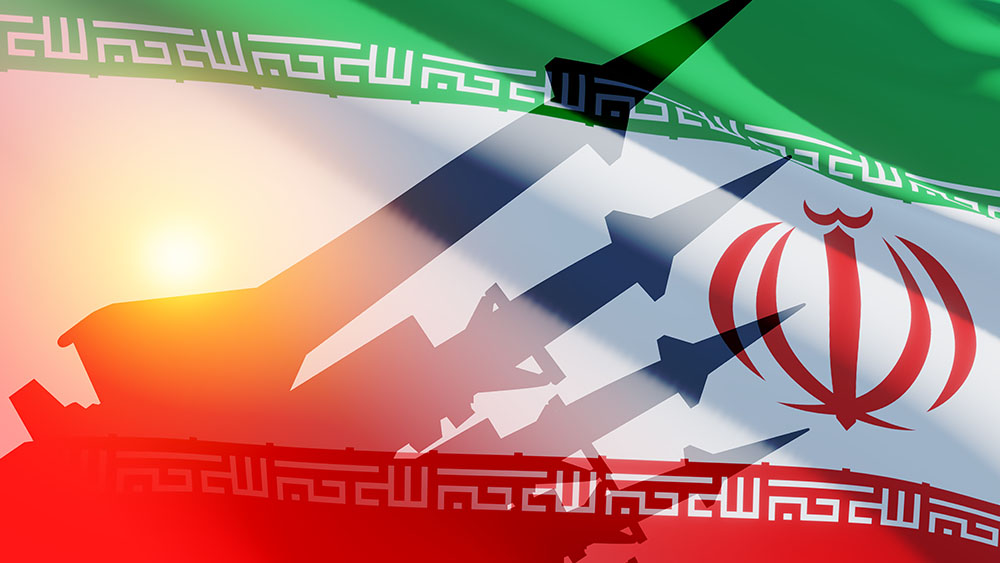US Attempts to Disrupt Iran Nuclear Deal Firmly Rebuffed
by James ONeill, New Eastern Outlook:

On 14 August 2020 the United Nations Security Council voted overwhelmingly to reject a United States attempt to extend the UN sanctions upon Iran that were imposed as part of the nuclear deal negotiated between the five permanent members of the Security Council plus Germany and Iran in 2015.
The United States, which had been one of the original signatories to the Iran nuclear deal was one of only two members of the United Nations Security Council (the other being non-permanent member the Dominican Republic) to vote in favour of its own motion to extend sanctions on Iran.
United States secretary of state Mike Pompeo referred to the UN vote as “inexcusable”, saying that the “failure to act decisively in defence of international peace and security is in- excusable.” The United States had in fact withdrawn from the agreement it had previously agreed to in May 2018. It is at least arguable that the United States forfeited any moral right to make the comment that Pompeo made given that it was both a signatory to the original agreement, and in the complete absence of any evidence that Iran had done other than comply with its obligations under the deal.
Particularly when viewed in the light of a long list of other unilateral withdrawals from agreements and institutions to which the United States has been a party, it raises the obvious question: why would any country bother to make an agreement with the United States when it is likely to be unilaterally revoked at any time in the future by a different president.
In a rather pathetic attempt to justify its position the United States sought to invoke what it called the “snap back” provisions of the agreement. There is no such clause, but putting the most favourable interpretation on the US decision, it seems to be their argument that the agreement to cancel sanctions can be revoked if there is non-compliance with the terms of the agreement.
Significantly, the United States has been silent on exactly what it is the Iranians are alleged to have done that would justify (notwithstanding the dubious nature of the whole snap back concept) an extension of sanctions. What is really at the heart of Trump’s position, and that of his dangerous secretary of state, is a visceral hatred of Iran and a determination to use any means at its disposal to undermine and potentially overthrow the Tehran government.
Russia’s President Putin sought a meeting of the five permanent members of the Security Council to discuss the issue further. It should be emphasised that Putin was not seeking to backtrack on the United Nations Security Council resolution or the sequence of events that have followed. It might fairly be interpreted as an attempt to rescue Trump from the whole he has dug for himself.
Trump did not seize the opportunity, instead making a vague statement about a possible meeting after the November 2020 presidential election. This was a meaningless suggestion. In all probability Trump will lose the November 2020 presidential election and be, at best, a lame duck president pending the swearing-in of his successor in January 2021. If, as seems likely, he loses the election a pointless meeting with the other permanent Security Council members on the Iran deal will be far from his list of priorities.
More significantly, any meeting after the election will also be done after the United Nations sanctions against Iran have elapsed. It defies credibility that they could be resurrected, especially given the certain opposition of both Russia and China to any such suggestion.
In a statement made by a spokeswoman for the Chinese Ministry of Foreign Affairs Hua Chunjing, she said China “supported the authority of the United Nations and the international order based on international law.”
In a similarly strongly worded statement in response to the United States’ comments and clear intention to ignore the United Nations Security Council resolution Russia’s President Putin said on 14 August, that “like anywhere else in the world, there is no place for blackmail or dictates in this (the Middle East) region, no matter the source. Unilateral approaches will not bring about solutions.”
Putin’s statement went on to add, in unequivocal terms, Russia’s support for the JCPOA. He said that the JCPOA outlined concrete and objective paths to unravelling the tangle of concerns in the region. Putin further stated that there was “no place for blackmail or dictate” in the Persian Gulf region. Unilateral approaches he said, did not help bring about solutions.


